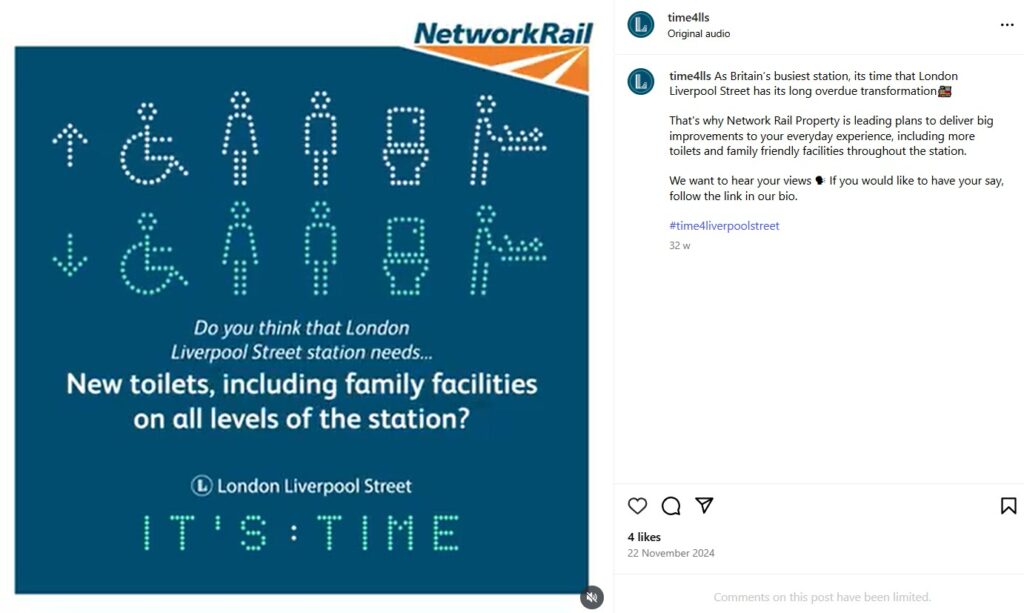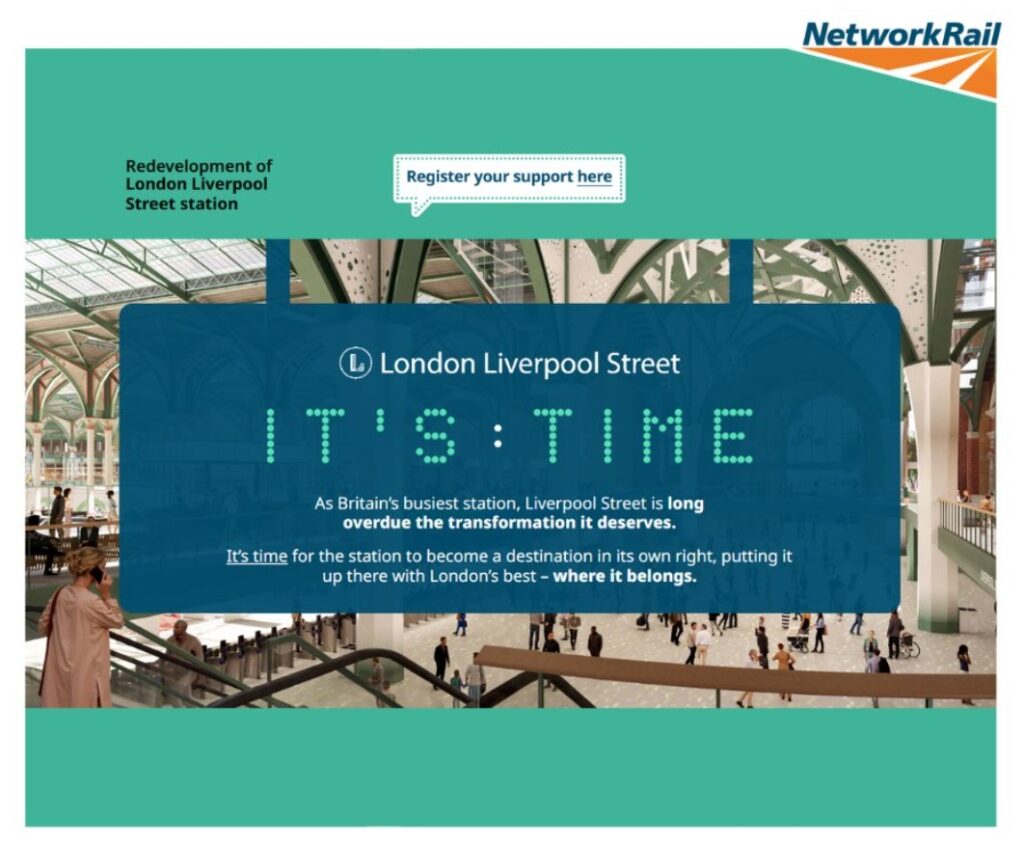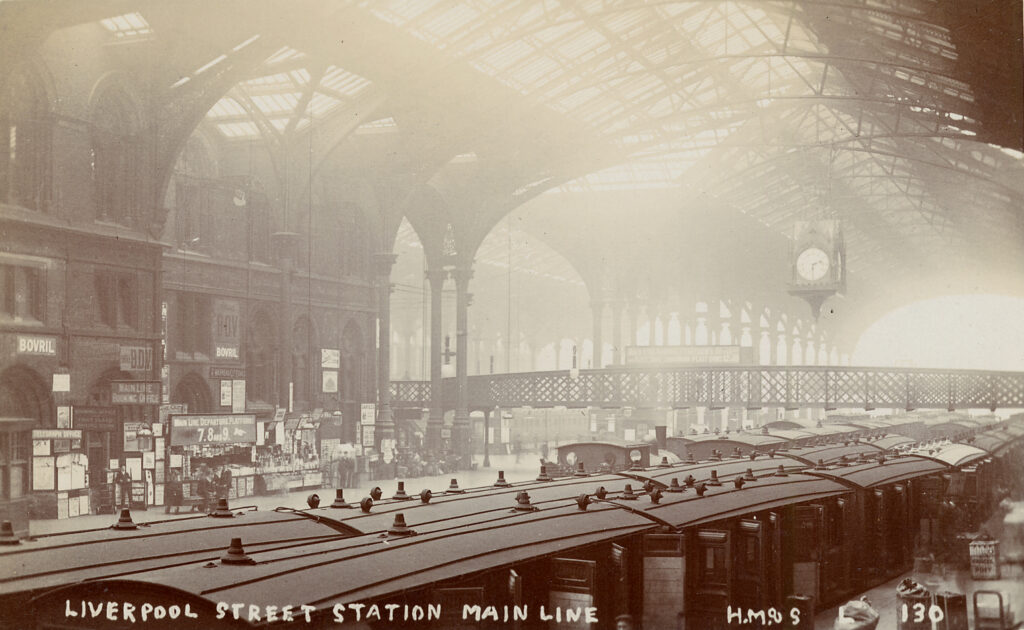President Griff Rhys Jones OBE and the Victorian Society’s Director James Hughes have expressed serious concerns about the validity of the public consultation process for the controversial redevelopment of Liverpool Street Station, and question whether tactics employed by a communications agency are undermining democratic transparency.
Network Rail, acting as developer, is seeking permission for a massive redevelopment of Liverpool Street Station, which would entail the demolition of the existing concourse – and, with it, a significant portion of the listed building – and the erection of a near 100m-tall office block on top of the station, in addition to introducing huge swathes of new retail directly inside the station’s Victorian train sheds. To help secure public support for these highly contentious plans, Network Rail has hired Shared Voice, a communications agency co-founded by a former adviser to Boris Johnson. According to Network Rail’s published records of expenses that exceed £25,000, Shared Voice received over £134,000 of public funds in return for its services in January alone.

As part of this service, Shared Voice set up a website, Time 4 Liverpool Street Station, bearing Network Rail’s logo but registered to the agency itself. It seems that adverts have also been posted on social media accounts inviting the public to answer innocuous or uncontentious questions – e.g., “Do you think Liverpool Street station needs more escalators?”. What users may not realise is that by responding to these questions, their words and personal data may be submitted to the City of London’s planning portal under the guise of a comment explicitly in support of the development. Indeed, the Victorian Society has heard from disgruntled individuals who say they responded to such adverts unaware that their words would then be submitted as a formal comment of support for the overall scheme, along with their names and their home address.


According to its website, Shared Voice’s “mission is to build a disruptor business that completely reshapes the politics of planning by making it unpopular for councils to refuse permission”. While, it claims, it is the only agency that takes its approach, it claims that “eventually everyone will do this because we will have made it the new normal”.
Many of the comments posted appear to have little or no relevance to the actual planning application and the scheme for which it seeks consent. Examples include vague or off-topic statements like “I use the station” or, simply, “Liverpool Street,”. These are not reflections on the scheme itself, let alone an expression of either support or opposition for it. A significant proportion might best be characterised as criticism of the station’s management: “the toilets smell”, for instance.




While lobbying firms have operated in other high-profile planning cases – such as in Bristol and Sheffield – this appears to be the most prominent instance of such tactics being deployed.
The Victorian Society is calling for urgent scrutiny of these methods. Public consultation must be open, transparent, and truthful – not subject to manipulation through opaque marketing strategies masquerading as grassroots support, particularly when it is the taxpayer footing the bill.
If anyone reading this thinks that their comments may have been used without their knowledge, then email us [email protected]

Photo of the iconic train sheds at Liverpool Street Station. Photo: Bishopsgate Institute




